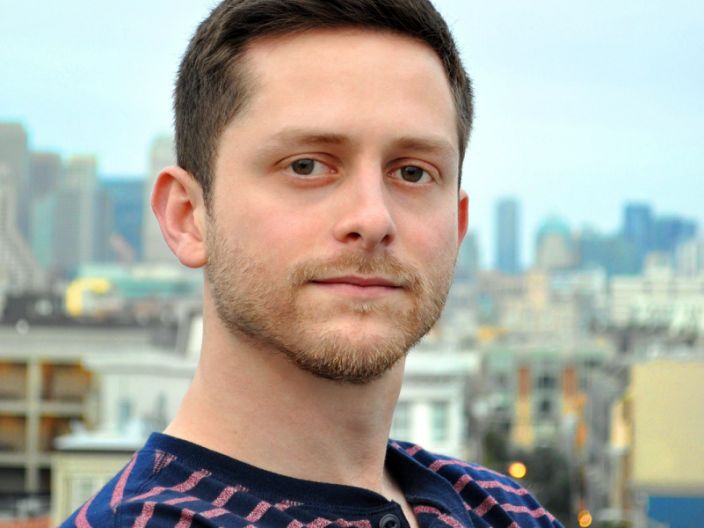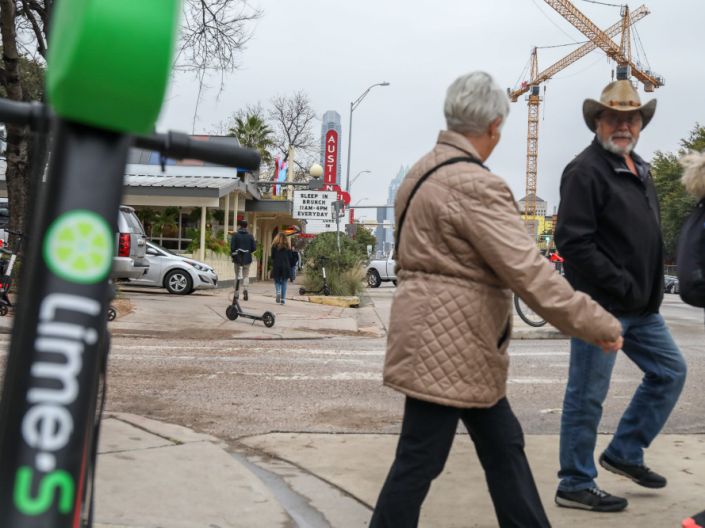
- Startup founder Ben Rahnema moved to Austin from San Francisco in early November, one of many in the Bay Area who have fled to the Texas city during the pandemic.
- He told Business Insider that a shift to remote work, a growing network in Austin, and housing costs were all contributing factors in his decision to move.
- He paid for a one-bedroom apartment in San Francisco and, for the same price, now has a three-bedroom house in East Austin, with a home gym and a backyard.
- Rahnema said “FOMO” in the “hive-minded” Bay Area could prompt more people not wanting to miss out on the next best thing to move out of the region and to cities like Austin, which already has a tech scene of its own.
- He said Silicon Valley may not be as much of a powerhouse in the long-term, but that doesn’t mean it’s dead or won’t rebound, and “people are over-exaggerating the kind of decline of” San Francisco.
When Ben Rahnema lived in San Francisco’s Cole Valley neighborhood, he rented a one-bedroom apartment with his partner.
Now, after moving to Austin, Texas, in early November, Rahnema has a three-bedroom house with front and back yards, a home gym, and a large home office – for about the same price.
Rahnema, a Y Combinator grad and founder of a company backed by famed VC firm Initialized, represents one of many in Silicon Valley’s tech talent pool who has decided to leave the Bay Area for Austin during the pandemic. The migration from Silicon Valley to Austin was already in motion, but it’s becoming clearer now just how influential the Texas capital may become to the broader tech scene as more people make the move.
One of the main reasons Rahnema felt tethered to living in the Bay Area was to be in close proximity to the cream of the crop of tech talent, not unlike many others who move to the region. Rahnema founded his B2B startup Source in 2017 and set up offices around the Bay, including in Oakland and San Francisco’s Bayview neighborhood.
But with offices closed across the country, workers no longer necessarily need to live near them.
Rahnema, who said he and his partner were considering moving even before March, told Business Insider “the advantages of being in SF were significantly diluted” during the pandemic. “If we moved to one of these cities that a bunch of other people are moving to within our network and people in tech, we can basically get those same benefits,” Rahnema said. So they moved to Austin on November 1.
He told Business Insider that he created a Slack channel of Y Combinator founders who have moved to Austin that had to be capped at 150 members because there were so many people. He also said he has 15 to 20 acquaintances who have made the move.
“I’ve had a chance to, not in person yet, but virtually meet with a ton of people who are here or are moving here,” Rahnema said. “And that’s been great being able to just build a local network and a community really, really quickly just because of how many people are moving to Austin.”
‘FOMO’ spreading in ‘hive-minded’ Silicon Valley
Austin already has an established tech ecosystem of its own that stretches back decades, with IBM, Samsung, and Dell Technologies cementing the city as a tech hub. And with so many moving to the capital city, more people began to consider the move to avoid feeling left out.
“There was a critical mass of people who were moving and, in kind of typical Silicon Valley fashion, everybody has FOMO and doesn’t want to miss out on the next place,” Rahnema said, calling the decision-making process “hive-minded.”
It seems that the tech community in Texas will only continue to grow – Oracle is moving its headquarters to Austin, Dropbox CEO Drew Houston is moving to the city, and Tesla CEO Elon Musk said he’s moving to Texas. The Boring Company is planting roots in Pflugerville, just north of Austin, and a Tesla Cybertruck factory is under construction nearby. That list doesn’t even include offices that Apple, Amazon, Google, and Facebook have built or plan to build in and around the city.

Other cities, like Miami, are in the running as relocation spots, but Rahnema said most of the founders in his network aren’t expressing much interest in moving to the Florida city. Instead, he said Miami seems to be luring high-earning venture capitalists.
“I don’t know if Miami really appeals to people who are the engineers, the people who are building things,” he said. “Maybe the more successful ones who’ve already kind of made it and have tons of money.”
VCs and founders gravitating toward different cities could even further accelerate a shift to remote work, Rahnema said – if both parties aren’t in the same city, they’ll be forced to connect remotely to fund companies.
Because of that shift to remote work, the Valley may hold less prestige than it has in the past, but “I don’t think there’s going to be any one other place that kind of takes its place,” Rahnema said. “I think it’s going to be more that just working from all these various places is more acceptable,” including Austin.
The city is situated in the beautiful Central Texas region, which includes the sweeping Hill Country and well-known spots like Enchanted Rock, Barton Springs, and Zilker Park. However, Rahnema said there’s one part about Texas and its higher temperatures that he already dislikes: the mosquitoes. He said he received a welcoming gift of 20 bites when he moved to Austin in November.
There’s a lot to do outdoors, which could be a contributing factor for many in deciding to move to Austin – people moving from the Bay Area want something similar to what the region offers, Rahnema said.
The San Francisco Bay Area’s beauty, with its temperate climate, proximity to the ocean, and hilly terrain to the north, east, and south, is an attractive draw for transplants. But that may not be enough to keep people there as housing costs stay as high as they are, though they have dropped some during the pandemic. In San Francisco, the average rent for a one-bedroom apartment is $2,650, according to Zumper – in Austin, you can get a four-bedroom apartment for about $300 less. Lots of people, like Rahnema, want a more comfortable living situation that isn’t a cramped apartment.
However, he thinks the Bay Area will definitely rebound, despite headlines suggesting otherwise. He said there are still great networks there, and more people are staying than are leaving. And a fresh wave of young, ambitious workers may also come to the city now that rent prices are dipping during the pandemic.
“I don’t think that San Francisco is dead or the Bay Area is not going to be an important city going forward in tech and in general,” he said. “I definitely think people are over-exaggerating the kind of decline of SF.”
Read the original article on Business Insider








